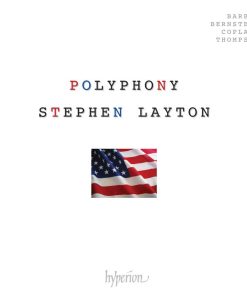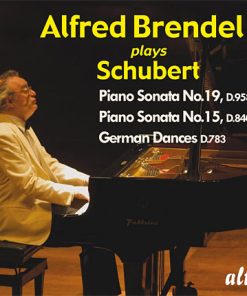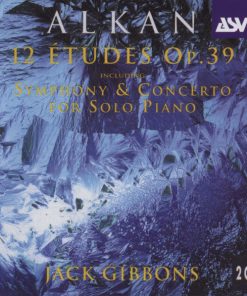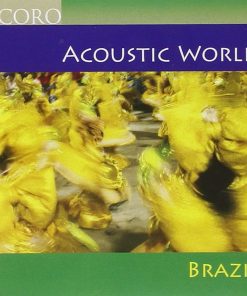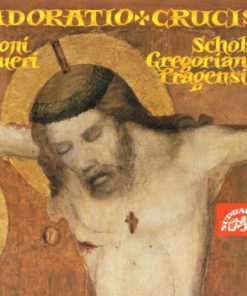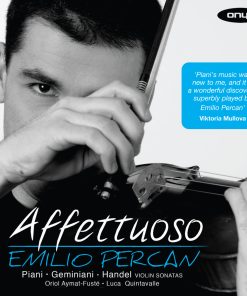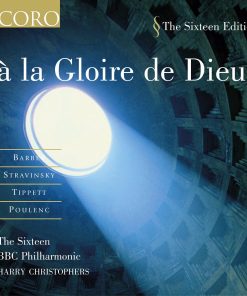ALBENIZ: Iberia / Vega / Yvonne en Visite / Navarra; Marc-Andr Hamelin Hyperion
$ 40,94 $ 24,56
Iberia[81’46]
CD1
1
Book 1 No 1: Evocación[6’23]
2
Book 1 No 2: El puerto[3’56]
3
Book 1 No 3: El Corpus en Sevilla[8’14]
4
Book 2 No 1: Rondeña[6’38]
5
Book 2 No 2: Almería[10’48]
6
Book 2 No 3: Triana[5’07]
7
Book 3 No 1: El Albaicín[7’27]
8
Book 3 No 2: El polo[6’47]
9
Book 3 No 3: Lavapiés[6’20]
CD2
10
Book 4 No 1: Málaga[5’01]
11
Book 4 No 2: Jerez[9’57]
12
Book 4 No 3: Eritaña[5’08]
13
La vega[16’00]
Yvonne en visite![6’26]
14
La révérence![1’52]
15
Joyeuse rencontre et quelques pénibles événements![4’34]
España. Souvenirs[12’13]
16
Preludio[8’43]
17
Asturias[3’30]
18
Navarra[8’40]William Bolcom (b1938)
The twelve extended pieces which make up Albéniz’ Iberia are not only the composer’s greatest work, but also the greatest piano work to come out of Spain. Fired by his discovery of the music of Ravel and Debussy, Albéniz transformed his earlier salon style, which essentially produced charming but slight ‘picture postcards’ of Spain, into a language which was much more complex—harmonically, texturally and pianistically—and which created a series of tone poems which capture the spiritual essence of Spain. The superabundance of the writing also makes the cycle one of the supreme virtuoso challenges, so who better to realize the beauty beyond the notes than Marc-André Hamelin who reveals here that the previous virtual monopoly of this work by Spanish pianists may have done more harm than good.
The couplings here are also particularly appropriate in that we have a complete survey of all Albéniz’ late piano music from 1897 until his death. La vega and España are clearly precursors of Iberia; they came after a five year gap in piano output and are the first works to show the composer’s new style. Yvonne en visite!, in perhaps its first recording, is a charming and humorous work illustrating a child’s reluctant piano playing. The collection closes with a new completion by William Bolcom of the unfinished Navarra, which probably reveals much more of Albéniz’ original intention than the perfunctory ending by de Séverac hitherto used.
Fast Shipping and Professional Packing
Due to our longstanding partnership with UPS FedEx DHL and other leading international carriers, we are able to provide a range of shipping options. Our warehouse staff are highly trained to pack your goods exactly according to the specifications that we supply. Your goods will undergo a thorough examination and will be safely packaged prior to being sent out. Everyday we deliver hundreds of packages to our customers from all over the world. This is an indication of our dedication to being the largest online retailer worldwide. Warehouses and distribution centers can be located in Europe as well as the USA.
Orders with more than 1 item are assigned processing periods for each item.
Before shipment, all ordered products will be thoroughly inspected. Today, most orders will be shipped within 48 hours. The estimated delivery time is between 3-7 days.
Returns
The stock is constantly changing. It's not entirely managed by us since we are involved with multiple parties such as the factory and our storage. The actual stock can fluctuate at any time. Please understand it may happen that your order will be out of stock when the order is placed.
Our policy is valid for 30 days. If you haven't received your product within 30 days, we're not able to issue either a return or exchange.
You are able to return a product if it is unused and in the same condition when you received it. It must also still remain in the original packaging.
Related products
MUSIC CD
MUSIC CD
MUSIC CD







